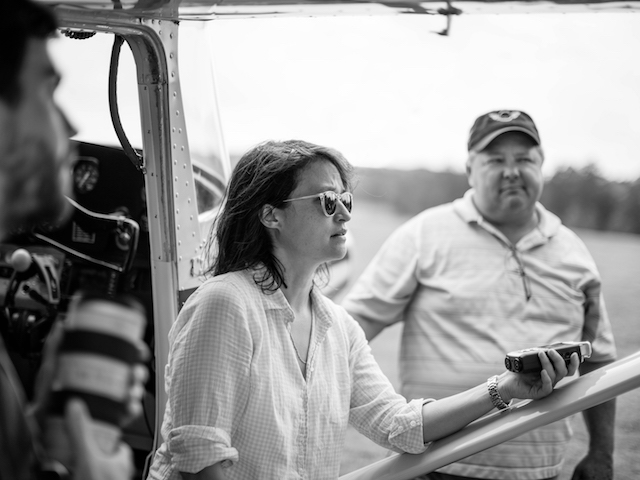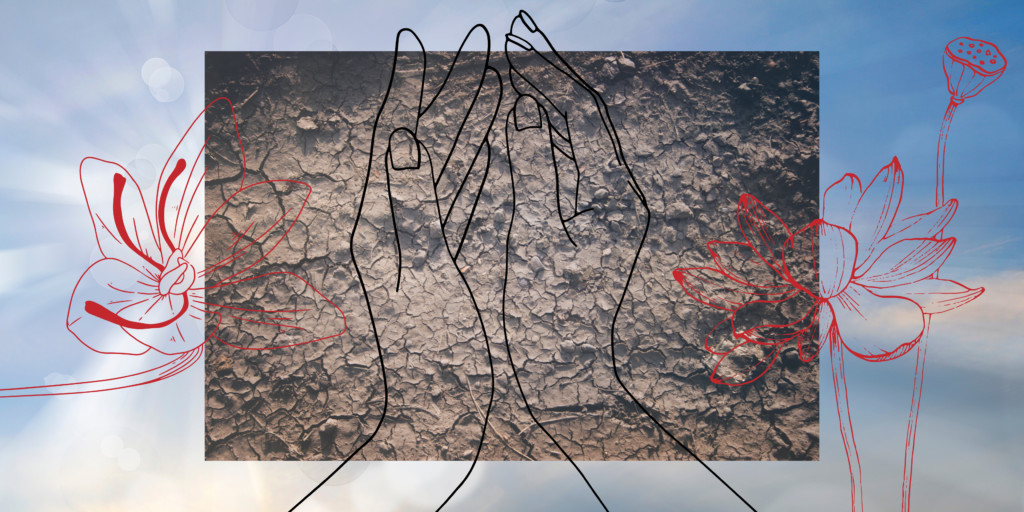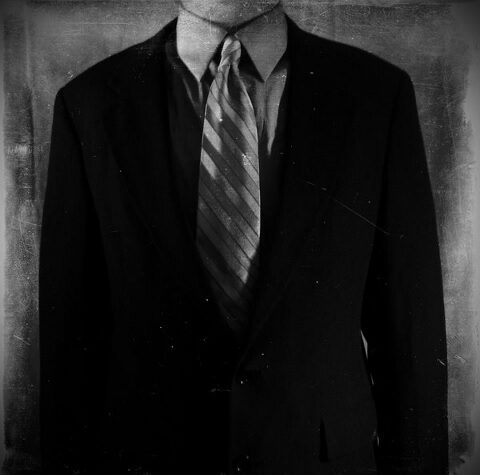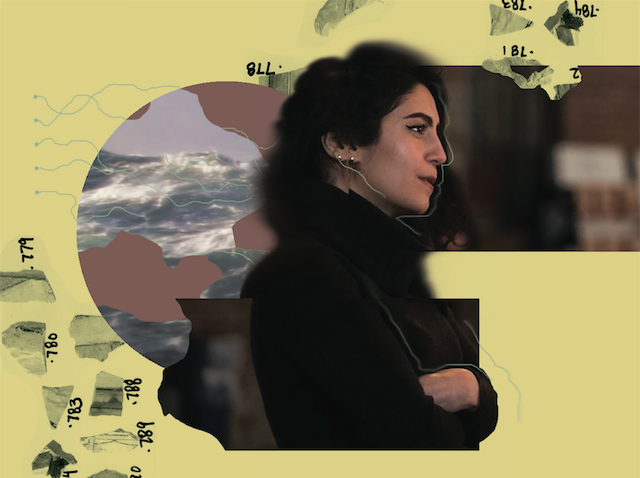Journalist Jennifer Crandall is re-claiming Walt Whitman’s “Song of Myself” through the voices and stories of the South.

April 24, 2018
Jennifer Chang Crandall, a Chinese American journalist, filmmaker and artist born in Ethiopia and raised in Pakistan, spent two years in Alabama documenting residents reading Walt Whitman poetry. Crandall, with usually one other teammate, crisscrossed the state, asking people if they would read one of 52 verses from “Song of Myself” while also revealing moments of their lives on camera. The result is Whitman, Alabama, a documentary video series that reveals the threads that tie us together—as people, as states, and as a nation.
Although this project is set in Alabama, Crandall was hoping to reach a wider audience. And her hopes were realized. The emails started flooding in from readers from different states and countries:
It is wonderful to see such a tender, non-judgmental portrayal of a state in the south.
In this climate, it fills me with a touch of hope. I am nothing like the people I see here. I am just like people I see here.
I just watched the piece on Donnie Goodin, who has sold candy outside my office downtown for years—and I wept, full throated, in my office chair.
The project is still ongoing. “For those of you out there we haven’t yet met,” Crandall says, “we’re not quite done, so don’t be surprised if we come knocking on your front door. Or send us an email with ideas for who to talk with next!”
In the summer of 2017, Liz Hildreth interviewed Jennifer Crandall about Whitman, Alabama for The Margins. Crandall talked about, among other things, why she had Southerners co-opt a poem written and published by a white dude from New York in 1855, how she wants the south folded into a general American consciousness, what it’s like to be a cultural translator from the day she was born, and what poetry should be. Spoiler alert: Not text on a page!
Liz Hildreth: Tell me how you first got the idea of doing the Whitman, Alabama project.
Jennifer Crandall: Well, the idea actually started long before I visited Alabama. I had come back from overseas, and was writing this goofy poetry, and also reading poetry, not knowing why I’m grabbing poetry books off the shelf. I needed something, and for whatever reason I was drawn to poetry. And I came across Whitman and I think at the time, I didn’t understand why I was drawn to it. He was talking about the multitudes we are, the diversity that we have within us—between individuals and within individuals. And I’d have to go back 25 years and look into the margins of my notes of those books to figure out exactly what I thought.
So when was that?
I was 16.
16? Wow!
Yeah, I was telling Kathleen [Rooney] my favorite poem was actually by Mark Strand, and it’s called “Keeping Things Whole.”
Yes! I love that poem.
Yes! I don’t know what it means to anyone else, but the last line “I move / to keep things whole”? That feels right to me. That came from the same time period and maybe even the same poetry anthology that I had bought at a Crown Books in Virginia when I was 16. And so a few years ago when I was working at Salon, I was thirty seven, and I was trying to come up with a new video series for them, and I was like, “Oh, it would be good to capture a better sense of Americans, travel all over the U.S.,” and I remember saying, “It should involve Walt Whitman somehow. And it just so happens he’s 37 years old in the beginning of ‘Song of Myself’ and I’m 37.” That project didn’t end up going anywhere, but I just remember thinking, Walt Whitman…Walt Whitman somehow…
And then prior to that there was the project I had made for The Washington Post, onBeing, which was all about identity. So when Michelle [Holmes] said to me, “Why don’t you do something for [Alabama Media Group]? Why don’t you be our Artist-In-Residence?” It just sort of made sense. I would never have suggested a Whitman, California or Whitman, New York. Pairing lives lived today in a southern state with old 19th century text written by a Yankee seemed like a great way to get at ideas of connection and American identity.
So what do you think it is about you that makes people open up to you? You really have an unusual gift.
I used to say, “I’m not really from anywhere.” But now, I think the more appropriate way to say it is “I’m a little bit from a lot of places.” I’ve had to be somewhat of a cultural translator from the day I was born. If you’re born in Ethiopia to a Chinese mother who speaks a cultural language of Vietnam and China, and you’re also born to a white man who speaks to a cultural language of sort of white male from Colorado, you grow up having to be bilingual—at least in between two cultures.
And that was amplified by the fact that I was in a third culture, which was Ethiopia, add onto that a fourth culture, as I moved, of Bangladesh, and Haiti, and then China, and then France, and so on. You’re forced to try to find ways to communicate, to fit in, because you’re not one clear thing and never have been. And so you become parts of lots of things, or parts of lots of things become part of you. This is what I draw from.
When you were interacting with people for this project, did they ever ask you what you “were”?
People ask me that constantly. “What are you?” On this project, they were a little bit more reserved. They would be like, “Where are you from?” Or that kind of thing. But growing up, I’ve learned that that question can be decoded in many ways. “Where are you from?” can be very much like, “Where are you literally from?” Which is a difficult question for me to answer.
But it can be, “Why do you look different? You don’t look white.” And I’m used to having to decode that question. And sometimes, to keep things interesting, I’ll respond with something that I know isn’t the question they want answered. I’ll say, “I’m from Washington, DC.” Then they’ll be like, “But where are you really from?” That’s not just Alabamians. That’s many people. It’s proof that they’re trying to get at the fact that I’m not white, they’re trying to figure out a way to ask why I look the way I do, what is my racial or ethnic makeup.
Even though I’ve watched these videos many times, if I watch them again, I will tear up and almost cry. Sometimes I will cry. And I’ll think, I’ve watched this so many times. Why am I crying? Do you cry when you watch these?
Yeah. I think that one can arrive at tears in film in a cheap way, and I work hard to not manipulate the audience toward that end. I don’t want the emotions this project provokes to be cheaply earned, I don’t want it to be saccharine, but mostly I don’t want it to be cheap. If it provokes an emotion, it evokes an emotion. But yeah, I’ve cried a lot.
Why do you think you’re crying?
I think for a lot of reasons. I’m so happy the project has finally launched, that it’s out there. I think it’s also me being like, “Wow. Look what Mariam did! Look what she gave of herself.” Or Virginia Mae. Because you watch and then you’re like “She died [shortly after filming], and there she is reading about herself being a 37-year-old man and in perfect health.” These folks have given so much, their lives and voices. That generosity and the beauty of what they’ve allowed our cameras to capture can get to me.
Do you think someone without your background could have made this project?
Walt Whitman did!
I mean this particular film project! And by “your background” I mean, you were talking about since you’ve been born you’ve always lived in different places, and you’ve been straddling cultures and trying to find a way to communicate. I just wonder if, say, a white man, a Northerner, made this particular film project what it might look like.
If Walt Whitman was around today, and he made a movie, I wonder what it would be. He managed to write a highly expansive, hugely empathetic piece while a white man in 1855, right? Which means he was writing it before 1855. So that was the medium of the day, and he did it, so I don’t think you have to have shared experience, or the same experience as me, to necessarily accomplish something similar. But it takes something. It takes a certain sensibility. And I think that sensibility can be born of lots of different things. Mine in particular was partially born of the things that I was talking about earlier. His? You could go to a Whitman expert to figure out exactly how he developed that sensibility. I think empathy is a word that’s almost lost its meaning because it seems over- or misused these days. But it’s importance shouldn’t be diminished. Some people have empathy, some people don’t or aren’t interested in it. But certainly it has a power if you prioritize it as a medium to work with.
So I think it’s possible to not have my background. Walt Whitman didn’t grow up in Ethiopia, Bangladesh, and Pakistan to a Chinese Vietnamese mom. But in “Song of Myself” he produced a highly empathetic work and he was a white dude from New York. He had something that compelled him to connect or understand that no matter how we see ourselves, we are inextricably linked to others.
If this project/experiment could achieve something, what would you want it to be? Do you have aims like that for this project?
Yeah, I just want people to be interested in getting to know each other better, or to find themselves [watching] a video and hooked by accident or on purpose, to find that “Oh I didn’t expect that maybe I might walk away from this being more interested in someone like this.” Whatever that “like this” is.
Because I think that if we can remember to engage with each other more on a daily basis, that the other details of divisiveness will work themselves out a little bit more smoothly than they are right now. I think also with social media, which I appreciate greatly, we’re losing the art of face-to-face conversation, getting to know each other in person. There is an art and practice to it. It’s something we should always be cultivating—going outside of our worlds to engage in other peoples’—to understand what we seek and where we sit versus what they seek and where they sit. And not with just strangers but with those close to us. How can we go deeper, find the richness and connection? Also, to my mind, connection shouldn’t have to mean what’s similar.
I also want the South to be better enfolded into a general American consciousness, as part an “us” instead of just “Oh, that’s the South.” The South has a lot of pride in itself, and it should. It’s a fascinating part of who we are. I like the notion of a unified whole as well as the beauty and distinction of its parts. I like the fact that we’re taking this American poem and having Southerners co-opt or co-create it, that we’re forcing that part of us into the front.
That’s what I wanted to do with onBeing too, to show that people should be looked at for their [individuality]. I dislike it when too often the media interview or portray people only for their minority status—of being gay, of being black et cetera. That’s part of what marginalizes people. We often only go to black people to be like, “How do you feel about Black Lives Matter?” Anecdotally, when occasionally I’d watch SNL, they seemed to often use a black actor or some other minority character only when the issues were about race versus just, “Here’s a black character.” It’s not like they create white characters and put them in scenarios only about race shit, you know?
That’s why when we were talking about the copy for the Whitman, Alabama website, I didn’t want it to be, “This person is an instrument maker. This person is a nurse.” While convenient, that’s intensely reductive. It will become the main lens through which everyone will regard that person henceforth, because it puts that simple label on them; and [Whitman, Alabama] is about trying to expand people’s notions of how they can look at other people or see who people are.
So when people talk about diversity or inclusiveness, it’s often in this very superficial way. We grab an Asian, we grab an African American, we have diversity. But this project is truly diverse. Can you talk about how you chose people and how you eliminated people, or declined to have certain people read?
We chose people in any number of people of ways—from just meeting them on the street to being thoughtful about what types of people are out there, what communities are out there, who can we reach out to. Soliciting suggestions from people as well.
But I found that unless you are hyper-vigilant—say, you just took a lot of the suggestions, which I could easily do because I’m from out of town and need help—that the project can very easily end up with a very specific racial, age, and socioeconomic representation.
Or you might end up with someone from a minority group simply because, “Obviously, she’s going to want diversity, so I’ll introduce her to a person that fits this minority group.” But I think you just have to be thoughtful. You have to be thinking about every form of representation possible and ask yourself, Are we geographically diverse? Are we age diverse? Are we ethnically diverse? Are we gender diverse? But then, am I only going to this person for their “fill in the blank”?
If the answer for me was “yes,” then I had to find more reasons. You can’t just go to a person because they check off a box. If I pigeonhole people, I’m doing a real disservice to them. Each of us has something that we would never want to be the only label on our forehead.
Also, I never allowed myself to know too much about a reader prior to filming. That left room for the unknown to emerge and take stage.
I also think that you have had to rethink the way that poems can be read and heard. Because when I have talked to people about this project, I said, “there are children who are deaf, who are reading there is a person who can’t read very well who is reading, and they’re like, But how? How do they read it?”
For me it’s about encouraging them to be themselves as much as possible. Like if someone was like, “Just be yourself reading the poetry, it’s like, “What? I never read poetry out loud. What’s that mean? And what is my own voice?” It’s really a deceptively difficult ask—to be yourself—because what is your self? There is no one self. But yeah, how do they do it? They just do it. Maybe I don’t understand your question. Are people confused as to how a non-professional reads?
Well, for example, somebody who doesn’t read, who can’t read, how do they read poetry then? It doesn’t occur to them that somebody could feed them the lines, and they could repeat them. Or if someone is deaf and can’t speak, it doesn’t occur to them that they could do it in sign language. Or like someone who has trouble speaking, who uses an electronic device?
Yeah, it’s like, “Come on, poets! It’s not about text on a page! Is that what poetry is supposed to be?” What happens when you physically introduce these words into someone’s life? It has to come out for them in some way.
For some people it’s reading, but it’s more about the physical act of reading it. And that’s what we’re capturing on film.
For Anthony [Stewart], I was hiding behind a tree, feeding him the lines. For Donnie [Goodin], it’s putting it into his computer. For the kids that are deaf, they’re signing it. There’s a language there. The only interpretation of “Song of Myself” shouldn’t be Whitman’s words on a page, clearly, because that’s also what he was saying. It should be people signing it, people living it, people…
Yeah!
Is there anything you want to do with this project before you finish it?
If I get the chance, I would like to shoot some more, like I did with On the Road with Pierre [Kattar] or Bob [Miller]. We do a lot of work to find people for the more organized and scheduled shoots. But I also like what comes at you when you put yourself out there to chance. There’s more room for serendipity to find its way in and the work is better for that.



